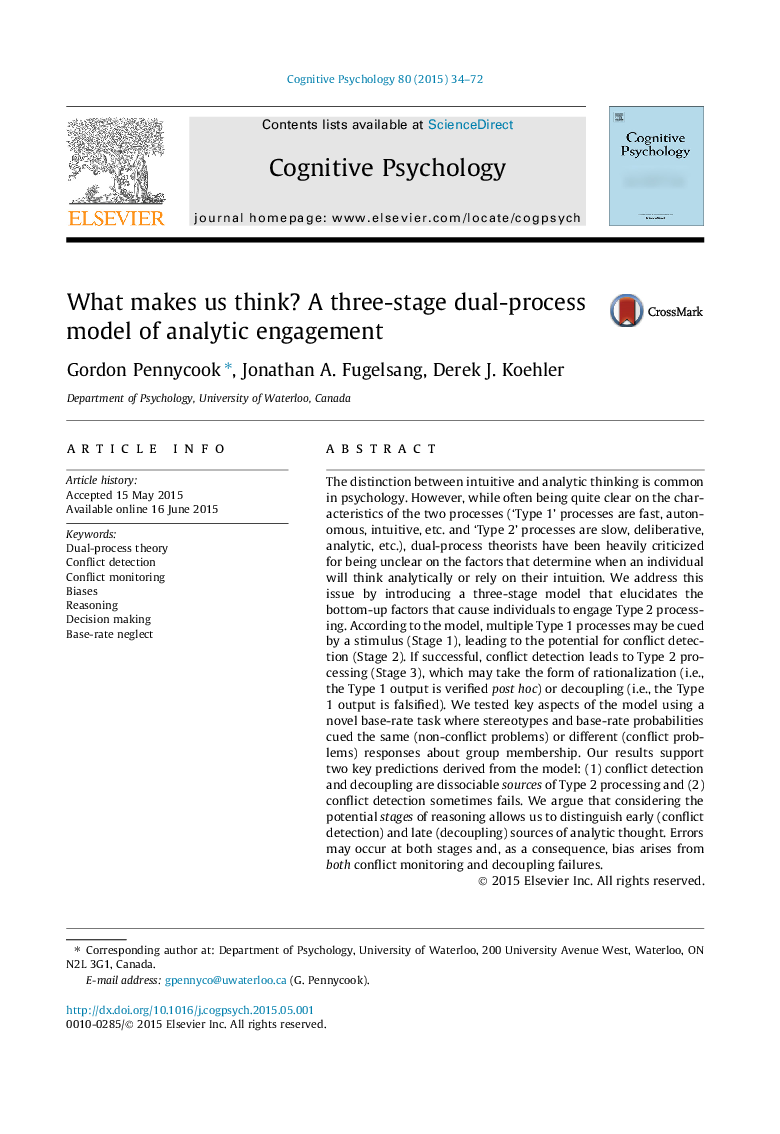| Article ID | Journal | Published Year | Pages | File Type |
|---|---|---|---|---|
| 916826 | Cognitive Psychology | 2015 | 39 Pages |
•We develop a three-stage model to explain what causes analytic thinking to occur.•The model distinguishes conflict detection and decoupling as early and late sources.•Bias can be caused by failures at either early or late stages.•Our brains sometimes fail to detect bias and sometimes fail to inhibit bias.•This work is a falsifiable and clearly defined application of dual-process theory.
The distinction between intuitive and analytic thinking is common in psychology. However, while often being quite clear on the characteristics of the two processes (‘Type 1’ processes are fast, autonomous, intuitive, etc. and ‘Type 2’ processes are slow, deliberative, analytic, etc.), dual-process theorists have been heavily criticized for being unclear on the factors that determine when an individual will think analytically or rely on their intuition. We address this issue by introducing a three-stage model that elucidates the bottom-up factors that cause individuals to engage Type 2 processing. According to the model, multiple Type 1 processes may be cued by a stimulus (Stage 1), leading to the potential for conflict detection (Stage 2). If successful, conflict detection leads to Type 2 processing (Stage 3), which may take the form of rationalization (i.e., the Type 1 output is verified post hoc) or decoupling (i.e., the Type 1 output is falsified). We tested key aspects of the model using a novel base-rate task where stereotypes and base-rate probabilities cued the same (non-conflict problems) or different (conflict problems) responses about group membership. Our results support two key predictions derived from the model: (1) conflict detection and decoupling are dissociable sources of Type 2 processing and (2) conflict detection sometimes fails. We argue that considering the potential stages of reasoning allows us to distinguish early (conflict detection) and late (decoupling) sources of analytic thought. Errors may occur at both stages and, as a consequence, bias arises from both conflict monitoring and decoupling failures.
Graphical abstractFigure optionsDownload full-size imageDownload as PowerPoint slide
